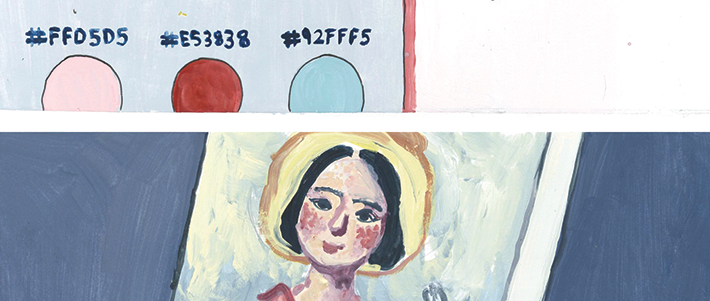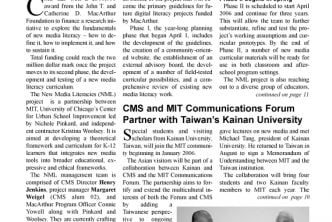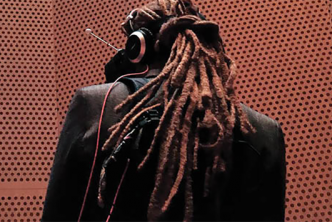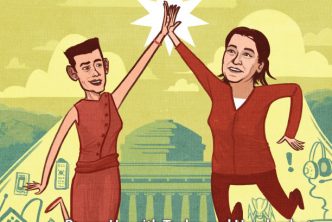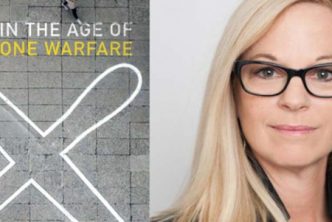Welcome to the 2018/19 academic year at Comparative Media Studies/Writing.
Let’s jump straight to the big news, announced just before this issue went to press, and congratulate Professor Lisa Parks. The MacArthur Foundation unveiled this year’s fellowships, unofficially known as the “Genius Grants,” and Lisa is a recipient. She is the second CMS/W faculty member to receive a MacArthur Fellowship, after Professor Junot Díaz won one in 2012. As you will see on pages 52 and 53 of this issue, Parks plans to use the $625,000 grant, distributed over five years, primarily to support her work in her research group, the Global Media Technologies and Cultures Lab.
Additional kudos are due to Associate Professor Sasha Costanza-Chock, whose essay “Design Justice, A.I., and Escape from the Matrix of Domination” was a winner of the inaugural Resisting Reduction Competition run by the MIT Press and our friends at the MIT Media Lab. Their piece, combining insightful technical and ethical analysis with their personal experience of how technology can force transgender people back into gender binaries, is powerful.
Overall the past twelve months have been great ones, as shown in the other pieces that follow. We feature the work of three Comparative Media Studies alumni in this issue, on “wholesome memes,” public radio membership, and, well, what it means to be an MIT alum. That last one comes from Candis Callison, ’02, who became the first CMS graduate to deliver the address at the Investiture of Doctoral Hoods. (She also earned her Ph.D. at MIT in 2010, in history, anthropology, and science, technology, and society.)
You might want to know about some major events coming up. First, we are thrilled to announce the relaunch of the Media in Transition conference, to happen in May 2019. Media in Transition — both the biennial conference and a book series by the same name — served to plant a flag in the ground for an upstart MIT program called Comparative Media Studies. CMS co-founder Henry Jenkins and Literature’s David Thorburn worked to bring the program, conference, and series to life, with big contributions from senior lecturer Edward Barrett, and those artifacts together set the tone for how CMS and later CMS/W would think of itself. Together they were transdisciplinary, welcoming to people from all academic backgrounds, and both a celebration of and challenge to traditional approaches to communications and media studies. Perhaps the biggest evidence of that is the conference’s free/low-cost registration. It is one of the few major media conferences that takes pains to be financially accessible to master’s students and others who do great research but may not yet have the budget that comes with a faculty position or fellowship. But down to business: the call for papers is out (see page 60), with a deadline for paper proposals of February 1, 2019. The theme is “democracy and digital media,” appropriate since that mirrors the theme of the very first Media in Transition conference. A lot of changed since then — for one thing, in 1999 “digital media” was still thought of narrowly as “computer culture” — so what better way to take stock than to return to similar questions for the conference’s 20th anniversary. Second, we are also rebooting the Media Spectacle after a brief hiatus. (See page 47.) For years the Media Spectacle has been the event for the MIT community to showcase its short films, animation, and other productions. But CMS/W undergraduate academic administrator Becky Shepardson pointed out that the ways students create and share videos has changed dramatically since the first Spectacle. Back then, a screening on campus might have been the only way to show off your production. Today, distribution is as easy as an upload. But that didn’t solve the problem of findability, acknowledgment, and community: your upload could fade into the static of a million others. So with the help of MIT Student Cable, the Spectacle has been revamped into a video-making hackathon. Last April saw the first of these, a weekend-long blitz of producing two-minute videos on the “IHTFP” theme.
It has been a pleasure to revitalize both of these events, since they were such a wonderful part of our community’s early days.
As usual, near the end of this issue you can find all sorts of shorter updates from faculty, staff, and alumni. One we should mention here though is news of a new book just shy of its publication date: Professor T.L. Taylor has written Watch Me Play: Twitch and the Rise of Game Live Streaming. It’s due out in October from Princeton University Press and “offers a vibrant look at the melding of private play and public entertainment.”
Finally, a last big news item that at this early point we can merely tease. Professor Fox Harrell will soon launch a Center for Advanced Virtuality. Its work is something that has long been percolating in our Open Documentary Lab and Harrell’s Imagination, Computation, and Expression Lab, but now the time is ripe for something grander. The intent is for the center to support production, studio courses, laboratory research, capacity building, and, as a whole, push this young field forward in a way that brings to bear the humanities’ focus on the social and ethical impacts of technologies.
There’s so much more to share. You can get caught up with much of it in this issue, but to stay up top of everything to come, be sure to stay in touch through our website (here at cmsw.mit.edu), where you can also find our social media channels and mailing lists. And remember, nearly all our events are open to the public, so don’t be a stranger. Come visit.

